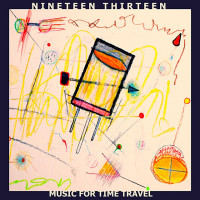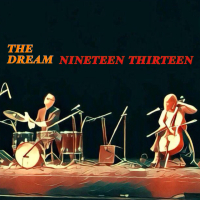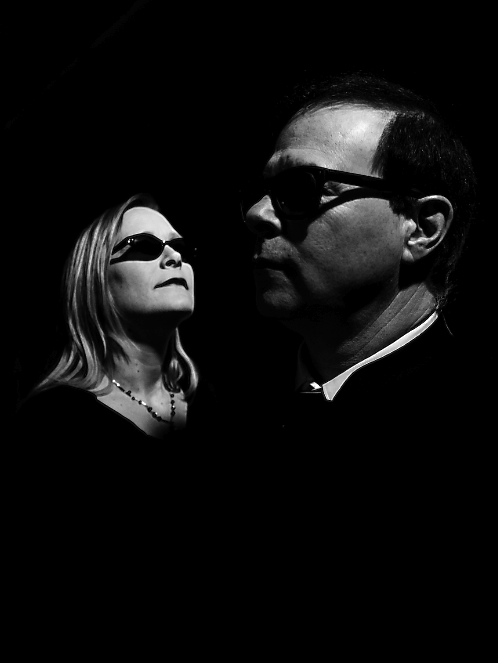Closer to dream merchants than a band, NINETEEN THIRTEEN is comprised of ex-Violent Femmes drummer Victor DeLorenzo and classically trained cellist Janet Schiff, aided by a revolving cast of esteemed studio session players. Named after the year Schiff’s beloved cello was milled in Transylvania more than a century ago, NINETEEN THIRTEEN traffics in a kind of jazzy, retro-futuristic ambient noir of their own devising, mapping out a twilit sonic space where Brian Eno’s Music For Airports lays down with Miles Davis’ Kind Of Blue. Think neon signs blinking ominously behind a semi-opaque curtain of  manhole steam. The crisp slap of wingtips on wet sidewalks. The dull hum of underground trains and sirens in the distance. Everyone wears famous blue raincoats and fedoras. Everyone smokes. Everybody knows the war is over, everybody knows the good guys lost.
manhole steam. The crisp slap of wingtips on wet sidewalks. The dull hum of underground trains and sirens in the distance. Everyone wears famous blue raincoats and fedoras. Everyone smokes. Everybody knows the war is over, everybody knows the good guys lost.
There are two extant recordings, an LP called Music For Time Travel, released late last summer, and an EP called The Dream, released earlier this month, that comes billed as a tribute to Eno. Music For Time Travel is a series of prismatic snippets that vibe like soundtracks for imaginary films about secret wars and spies in skinny suits and vampires with diamonds on the souls of their shoes. If you listen closely, you can almost hear the black turtlenecks and Ray Bans in the warm thrum of upright bass, the pristine shuffle of snare, and the lowing moan of the cello. The highlight is a mesmerizing version of Gershwin’s aria “Summertime,” featuring the Valkyrie-like vocals of Monia and the dancing skeleton bass of legendary sideman Rob Wasserman (Lou Reed, Van Morrison, Elvis Costello), who, sad to say, passed away back in June.
Good as Music For Time Travel is, The Dream is a giant step forward. The music not only vividly evokes distinctive moods, but sustains them long after lesser combo’s would have abandoned ship. “Arco Pizzicato” — built upon a slap-back echo drumbeat, a shivering cello, and dark washes of keyboard that recede into the infinite — clocks in at nine minutes-plus. Likewise, the album closing “#1913 Dream” — a ghostly lullaby of sprawling pneumatic drones prodded along by a gorgeously muted pinging — also clocks in at nine minutes plus but never ceases to enchant the ear. The spectral murk of “Walk Light” sounds like a marching band playing the halftime festivities of doomsday. The otherwordly “A Dream You Can’t Remember” straddles the fulcrum of the sinister and the sublime, with DeLorenzo’s son Malachi vamping ominously on bass. Highly recommended, The Dream is bewitching beginning to end. — JONATHAN VALANIA
“Arco Pizzicato” — built upon a slap-back echo drumbeat, a shivering cello, and dark washes of keyboard that recede into the infinite — clocks in at nine minutes-plus. Likewise, the album closing “#1913 Dream” — a ghostly lullaby of sprawling pneumatic drones prodded along by a gorgeously muted pinging — also clocks in at nine minutes plus but never ceases to enchant the ear. The spectral murk of “Walk Light” sounds like a marching band playing the halftime festivities of doomsday. The otherwordly “A Dream You Can’t Remember” straddles the fulcrum of the sinister and the sublime, with DeLorenzo’s son Malachi vamping ominously on bass. Highly recommended, The Dream is bewitching beginning to end. — JONATHAN VALANIA

